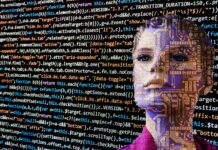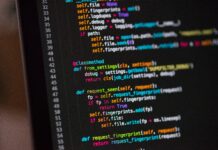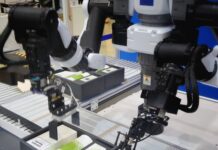COVID-19, the novel virus that caused nearly a third of the World’s population to go into lockdown earlier this year. This virus has created a new normal of wearing face coverings, social distancing, and restrictions that the majority of us have never experienced before. In the battle to defeat COVID-19, a cure is one of the most important aspects that will help us to return to normality. With the help of global research and new technology, the race for a cure has progressed unlike any other disease seen before.
Understanding Viral Protein Structures
To understand how a virus works, scientists want to know the protein structure of a virus. This structure is made up of a unique sequence of amino acids and by knowing how these work, scientists will be able to create a drug that specifically targets the protein’s shape. Deepmind, an AI-based company, used a system called Alphafold to produce predictions of the protein structures that were associated with SARS-CoV-2, the virus that causes COVID-19. Alphafold relies on large amounts of genomic data sets to produce 3D models of proteins and uses deep neural networks which are trained to predict the distances between pairs of amino acids and the angles between chemical bonds that connect those amino acids. By using large amounts of datasets and deep neural networks, AlphaFold can produce some of the most accurate models of protein structures that we have ever seen. The system could be used to help scientists visualise the structure of COVID-19 to help them understand how the virus works.
Finding Drug Targets
AI can be used to analyse large amounts of information in just a few seconds which means results of trials and research can be produced at a much quicker rate. London-based company BenevolentAI has used an AI-powered knowledge graph which can process large amounts of scientific and biomedical literature to find connections between the properties of diseases and a drug. The company used their knowledge graph to find out about how the virus entered cells and how they replicated which resulted in a suggested drug called Baricitinib which is currently used to treat rheumatoid arthritis. The properties of Baricitinib suggest that it can slow down the virus being taken in by cells. AI has given way for Eli Lilly, a company that markets Baricitinib, to work with the U.S. National Institute for Allergies and Infectious Diseases (NIAID) to see how effective Baricitinib is against COVID-19.
Another company which has helped find molecules that could be used against COVID-19 is TCS. TCS scientists have identified 31 molecular compounds that hold potential towards a COVID-19 cure. The scientists trained an AI model on medicinal chemistry and set up a model. After having created a model, they asked the AI about SARS-CoV-2. Already, knowing that SARS-CoV-2 had a protein responsible for replicating, the scientists asked the AI to generate molecules that stopped the replication process. This led to a list of 31 potential molecules to work against SARS-CoV-2. Without AI, this process would have taken a lot longer since scientists would have had to test hundreds of molecules and there would have been a greater chance of mistakes being made during manual testing.
Personalizing Covid-19 Care
Microsoft and UK based company Sensyne Health use their SENSE clinical algorithm to generate AI algorithms for real-time decision support for medical conditions. The AI algorithm, called SYNES, enables staff to enter current information about their patients for machine learning to analyse. The analysis is compared with a database with healthcare information on patients, resulting in the algorithm giving advice on what steps healthcare staff should take next when treating a patient.
With regards to COVID-19, the SENSE system has developed an algorithm called SYNES-COV. The data will be analysed in real-time, allowing healthcare staff to know the risks of three outcomes: risk of ICU admission, the need for a ventilator and chance of dying in hospital.
Artificial intelligence has accelerated our understanding of COVID-19 in a way that has never been seen before. AI has allowed us to analyze large amounts of information about the virus, produced accurate models of protein structures, and has even suggested potential drugs. All this information has helped scientists gain a solid foundation of COVID-19 and further their research. The pandemic has allowed AI to develop and be used to make a difference in the world.



















